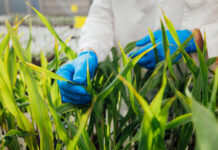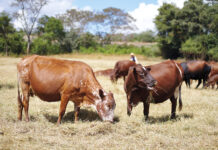Soil degradation remains a pressing challenge for smallholder farmers across Africa, threatening food security and livelihoods. A recent review published in nature.com emphasizes the transformative potential of organic inputs in revitalizing soil health and enhancing agricultural productivity.
Organic inputs—such as compost, manure, green manures, and crop residues—are pivotal in enriching soil organic matter. This enrichment fosters improved soil structure, water retention, and nutrient cycling, creating a conducive environment for plant growth. Moreover, these inputs support a diverse microbial ecosystem, essential for nutrient availability and disease suppression.
Incorporating organic materials into farming practices not only replenishes essential nutrients but also enhances the soil’s resilience against erosion and degradation. This approach aligns with sustainable agriculture principles, promoting long-term productivity without compromising environmental integrity.
Tailoring Practices to Local Contexts
The review underscores the importance of context-specific strategies. Factors such as climate, soil type, and available resources vary widely across regions, necessitating localized solutions. For instance, in areas with limited access to animal manure, green manures like Mucuna pruriens can serve as effective alternatives, enriching the soil with nitrogen and organic matter.
Community-based composting initiatives and the utilization of locally available organic materials can further enhance accessibility and adoption of organic inputs. By engaging local knowledge and resources, farmers can develop sustainable practices tailored to their unique circumstances.
Integrating Organic and Inorganic Inputs
While organic inputs offer numerous benefits, integrating them with inorganic fertilizers can optimize nutrient availability and crop yields. This integrated approach allows for the immediate nutrient supply from inorganic sources while building long-term soil fertility through organic matter accumulation. Such synergy can lead to more sustainable and productive farming systems.
Overcoming Challenges and Scaling Up
Adopting organic inputs at scale presents challenges, including labor demands, knowledge gaps, and initial yield variability. Addressing these issues requires concerted efforts in farmer education, extension services, and policy support. Training programs focused on composting techniques, crop rotation, and soil management can empower farmers to implement organic practices effectively.
Policy interventions that support organic agriculture—such as subsidies for organic inputs, research funding, and inclusion in extension services—can facilitate broader adoption. Collaborative efforts among governments, NGOs, and research institutions are vital in creating an enabling environment for sustainable farming practices.
Sustainable agricultural productivity
Enhancing soil health through organic inputs offers a viable pathway for smallholder farmers in Africa to achieve sustainable agricultural productivity. By embracing context-specific strategies, integrating organic and inorganic inputs, and addressing implementation challenges, stakeholders can foster resilient farming systems that support food security and environmental sustainability.









